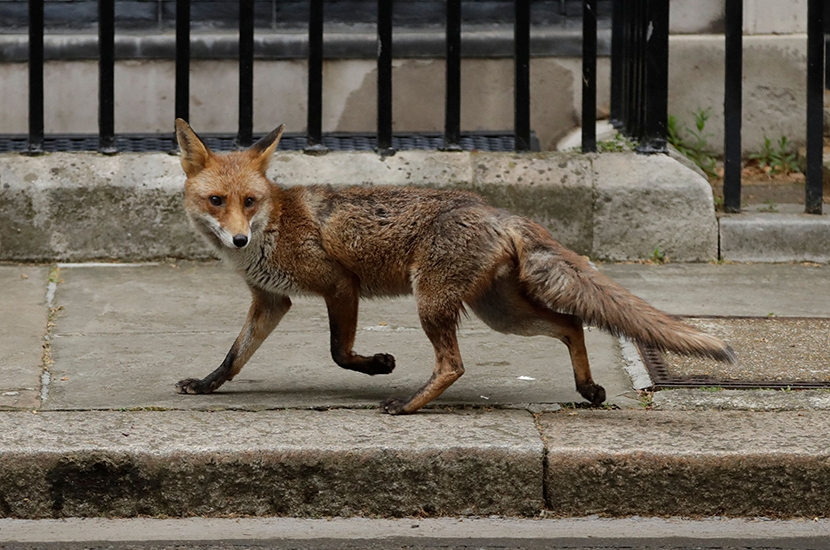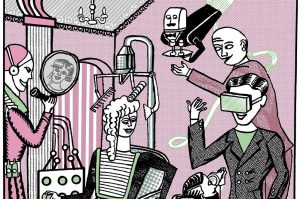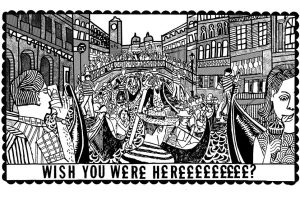London
I used to live in Mogadishu for months at a time, cooped up in compounds behind fortified walls. Venturing on to the streets meant a flak jacket, escort vehicle bristling with guns, chain-smoking as we zoomed through smashed districts, militias, ambushes and roadside bombs. Despite the incarceration, Somalia gave me some of my happiest memories. At home on the ranch in Kenya we often make a point of staying away from town for as long as possible. Our record is three months of no stores, offices, crowds or traffic — just cattle, pasture, birdsong and the rarest of visitors dropping by for a beer. And as a child in north Devon during the winter of 1978, I recall the local constable escorting me across fields in a blizzard to my mother’s arms. We were cut off from the outside world, surrounded by deep snow and eerie silence for two weeks until a bulldozer cleared the lanes to the village of Iddesleigh.
As time went on during lockdown in London, the Hartley family got over being castaways and forgot about being homesick for Africa. As the weeks progressed we began to feel privileged to be in the city during such a historic time. Always before I have seen the world at ground level, avoiding oncoming pedestrians. But pacing empty streets, we began to look up and see the rooftops. On our runs, we became familiar with silent statues, churches and squares. People greeted each other in the street and I made friends with characters I often bumped into randomly, without knowing anything about them at all.
As spring turned to summer, cycling around London became a truly lovely experience, so that it will be hard ever again to get into a train or taxi in the sunshine. As a way of checking I was not going down with the virus, every morning I would open a bottle of vinegar and sniff, then taste something tart like a slice of lemon. But the smells of London during this time were so strong I needn’t have worried. Walking in the parks and squares, the scent of flowers was amplified in the clear air. One morning I detected the loveliest of aromas and was suddenly embarrassed to realize the source was a beautiful woman strolling by on the other side of a flower bed. Everybody will remember the birds, the confident foxes, the gentle re-emergence of nature in the spring of 2020.
Friendships too. As we began to emerge from our caves and plan how to live again, I would meet Ian for ‘essential work’ breakfasts. As we carved our way through huge piles of duck eggs, beans and bacon, we dreamed our way out of lockdown, thinking how the world could be after this. As things began to relax, our son Rider jumped on a train to race across England, finding himself the only boy on the platform — the only person on the entire express — traveling hours across the country to stay with his friends. The rest of us were invited at last to spend an evening at another family’s house. The build-up was thrilling. We dressed up. We took a bottle of wine. We sat in the garden and exchanged news. The excitement of being with other people in a social setting — rather than seeing them on a computer screen — was so intense I think we all experienced a little epiphany.
[special_offer]
I won’t miss lockdown, obviously. I miss my mother, I miss our home, and I shall miss my aunt Beryl who died in hospital recently (but not because of the virus). But these were extraordinary times to be alive in the capital. Unless you took photographs or videos of the empty streets during early April, it would be impossible to convince others or even yourself that you saw such scenes. Walking through Soho one day about two weeks into the Great Silence, I felt the buildings were exuding a ghostly residue of thronging crowds and life. It was like a long drawn-out sigh, or an echo. Every day the atmosphere in the streets changed, until the time came when I felt the buildings had lost their energy and they were just stones, like tombs in a necropolis. That went on for two weeks or so, and then suddenly the blood began pumping back into the veins of the city. And here we are today, coming back to life.
This article was originally published in The Spectator’s UK magazine. Subscribe to the US edition here.





















